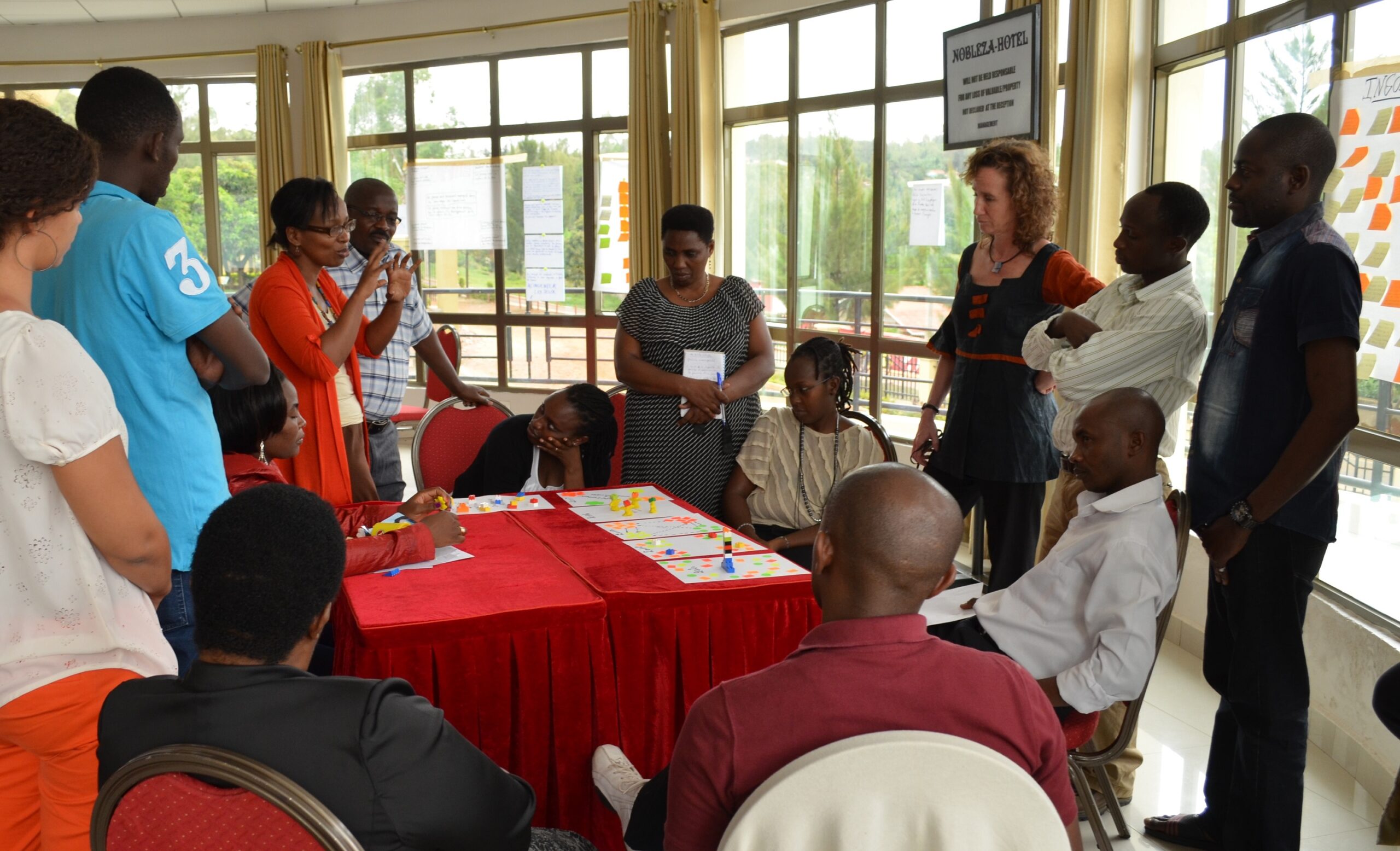This summer the Robert S. Strauss Center for International Security and Law is thrilled to be funding seven Crook Fellows, who will be interning at non-profit organizations devoted to development work all over the globe. The fellows will be blogging about their experiences in the field over the next few months, so be sure to check back for more posts.
Within International Development (and pretty much every other field), “innovation” has become something of a buzzword. In response to the critics who claim development does little to improve peoples’ lives, do-gooders are under tremendous pressure to come up with something new and different, to prove that this time, this method will visibly work.
The same is true for peace-building organizations like the one I’m interning with, Search for Common Ground (Search or SFCG). Posted in Kigali, Rwanda, as a part of the East and Southern Africa regional team, I can see that Search has set the standard for innovative conflict transformation for decades. Here in the Great Lakes region of Africa, Search staff have developed tools like game shows, image boxes, and reality TV programs that have now been adapted in Search’s work in 34 countries.
One particularly impactful new tool that Search has developed is participatory theater. For instance, in Rwanda teams of trained actors use theater to address land conflict at the local level. They travel to small communities and “develop a unique scenario for each performance, reflecting the specific context in the community they are visiting. Spectators are engaged in the performance, and rather than being told what to do by the actors, the audiences see their own neighbors and friends acting out new and appropriate ways to address conflict without violence.” (excerpt from the impressive success stories and methodology published here)
And Search isn’t stopping there. From June 2- 4, I was part of the regional Innovation Forum facilitated by Lena Slachmuijlder, Search’s Vice President of Programs. This was not your typical training. Slachmuijlder encouraged participants to completely let go of our understanding of problems and solutions so we can look at the root causes of issues. She worked with us to embrace change and acknowledge our fear of failure so we can get outside of the box and find game-changing new approaches to peace building.
Search for Common Ground staff at the Innovation Forum in Kigali, June 3, 2014 (photo courtesy of Search for Common Ground)
In a nutshell, Search for Common Ground is doing what few development organizations are brave enough to attempt – they are trying to work themselves out of a job. By making creativity a part of Search’s on-going culture, the staff are driven to truly serve the needs of local groups and individuals, rather than perpetuating a cycle of dependence. And sometimes that means taking creative risks.
To innovate, we have to be willing to disrupt the status quo with an idea that overrides previous solutions. Take new technologies such as WiFi for example. Before WiFi , we focused on how to physically install internet hookups for every device. When WiFi was invented and popularized, it changed everything from how we eat and sleep to how we vote.
So what is the next big wi-fi type idea for peace-builders? Although we certainly didn’t solve all of the world’s problems during those three days, the Innovation Forum laid the groundwork for Search staff to start modifying the field of conflict transformation. Using tactics like reframing, user journeys, and backcasting (typically used as design tools from groups like MIT’s Media Lab and THNK), the Forum stimulated an ongoing culture of creativity.

The author (center) and colleagues watch a presentation during the Innovation Forum, June 3rd, 2014 in Kigali (photo courtesy of Search for Common Ground)
At SFCG-Rwanda, creative culture is a tangible part of our work after the Innovation Forum. This week, I had the pleasure of facilitating a brainstorming session for our office. We worked on getting over that natural instinct that tells us our ideas are silly (or that tells us that our teammates’ ideas are silly). We know that the path to innovation is paved with some failures, and we openly accept and celebrate that. We also try to move from the theories of innovation to concrete, actionable ideas.
For instance, we discussed complementing our already successful radio programs with a hotline so listeners could call in and connect with mediators and other experts. Another idea was to work with scout organizations to create a peace-builders badge for youth. This is just the beginning, as Search staff worldwide seek out new ways to improve their communities.
At the end of our brainstorming session, the SFCG -Rwanda team stood in a circle and held hands in a way to crisscross our arms, forming a knot. I asked the group to look at the human knot we created and imagine that this web was the accumulation of all the things that came out of our discussions, including the challenges to our new ideas.
We held hands and giggled as we worked together to untie that knot, and I realized that this is why I’m here. Interning with Search is exactly the innovation that my academic career needed – to get away from the theories and textbooks and see first-hand how these courageous, enthusiastic peace-builders are transforming conflict in their communities. I believe that human knot is exactly where we start to find innovations for peace.


